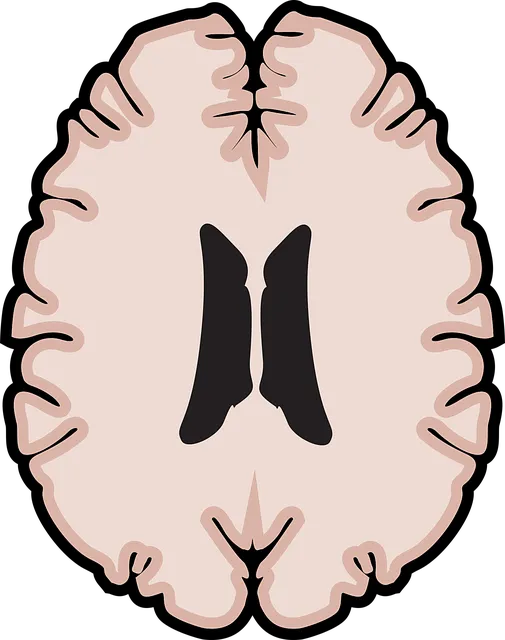Lone Tree Kaiser Permanente's dedicated mental health providers offer personalized emotion regulation techniques for improved mental well-being and quality of life. Their holistic approach includes mindfulness, stress management, and cognitive reframing, empowering individuals to navigate emotions healthily and reduce mental illness stigma. Through structured practices and community outreach, clients gain tools for conflict resolution, enhanced resilience, and better stress management in daily life.
Emotion regulation is a vital skill for managing stress, enhancing relationships, and improving overall well-being. The Lone Tree Kaiser Permanente mental health providers offer valuable techniques to help individuals of all ages navigate their emotions effectively. This article explores the importance of emotion regulation, provides practical tools from these experts, and guides readers through incorporating these strategies into daily life. We also delve into the benefits, challenges, and future prospects of teaching emotion regulation skills.
- Understanding Emotion Regulation: Why It Matters and Who Can Help
- Techniques for Daily Life: Tools Offered by Lone Tree Kaiser Permanente Mental Health Providers
- Incorporating These Strategies: A Step-by-Step Guide for Effective Learning
- Benefits, Challenges, and Future Directions: What to Expect from Emotion Regulation Teaching
Understanding Emotion Regulation: Why It Matters and Who Can Help

Emotion regulation is a vital skill that enables individuals to understand and manage their feelings effectively. It’s about more than just suppressing emotions; it involves recognizing, accepting, and responding to them in healthy ways. This process is crucial for maintaining mental well-being and can significantly impact overall quality of life. Many people struggle with regulating their emotions due to various factors, including stress, trauma, or even underlying mental illnesses.
At Lone Tree Kaiser Permanente, our dedicated mental health providers offer specialized support and guidance on emotion regulation techniques. They recognize that each individual’s journey is unique, so personalized coping skills development is at the core of their practice. By addressing emotional challenges head-on, these professionals not only help patients navigate their feelings but also contribute to Mental Illness Stigma Reduction Efforts. Self-care practices are also integral to this process, empowering individuals to take control and foster a healthier relationship with their emotions.
Techniques for Daily Life: Tools Offered by Lone Tree Kaiser Permanente Mental Health Providers

Lone Tree Kaiser Permanente mental health providers offer a range of emotion regulation techniques tailored for daily life challenges. These tools are designed to help individuals manage and cope with stress, anxiety, and other intense emotions effectively. One key strategy is communication strategies, which empower people to express their feelings in healthy ways, fostering better understanding and connection with others. By learning these skills, patients can prevent burnout and build resilience against life’s stressors.
In addition, mental health professionals teach coping skills development to enhance emotional well-being. These coping strategies include mindfulness practices, stress management techniques, and cognitive reframing, enabling individuals to navigate difficult situations with greater ease and composure. Through these comprehensive approaches, Lone Tree Kaiser Permanente mental health providers support their clients in leading happier, more balanced lives.
Incorporating These Strategies: A Step-by-Step Guide for Effective Learning

Incorporating effective emotion regulation techniques requires a structured approach for optimal learning and application. At Lone Tree Kaiser Permanente, mental health providers often guide clients through a step-by-step process to enhance emotional well-being promotion techniques. Begin by identifying triggers—situations or emotions that frequently elicit strong responses. This awareness is crucial for managing emotions before they escalate. Next, learn and practice mindfulness exercises tailored to calm the mind and body. Techniques like deep breathing, meditation, or grounding exercises can be powerful tools in the moment.
Following this, explore cognitive reframing strategies to challenge negative thought patterns. By identifying distorted thinking, individuals can replace unhelpful beliefs with more realistic, balanced perspectives. Additionally, consider integrating these techniques into daily routines through structured practices, such as a dedicated meditation time or regular journaling. Lone Tree Kaiser Permanente’s Community Outreach Program Implementation encourages clients to apply these skills in various settings, fostering better stress management and emotional resilience. Over time, consistent practice strengthens the ability to regulate emotions effectively.
Benefits, Challenges, and Future Directions: What to Expect from Emotion Regulation Teaching

Emotion regulation teaching offers a multitude of benefits for individuals seeking to enhance their mental well-being. By learning effective strategies, folks can better navigate their emotional responses, fostering improved mental health awareness and anxiety relief. This empowering approach enables people to manage stress, resolve conflicts more constructively using conflict resolution techniques, and cultivate resilience in the face of life’s challenges.
Despite its advantages, emotion regulation teaching isn’t without hurdles. It requires commitment and consistent practice to see significant results. Additionally, individuals may struggle with self-awareness and acceptance, key components for successful implementation. However, the future of this approach looks promising. As research continues to grow, Lone Tree Kaiser Permanente mental health providers can refine techniques, making them more accessible and tailored to diverse needs. This evolution ensures that emotion regulation teaching will remain a valuable tool in promoting holistic well-being.
Emotion regulation techniques offer a powerful toolkit for navigating life’s challenges. As discussed by the Lone Tree Kaiser Permanente mental health providers, these strategies can significantly improve overall well-being and quality of life. By understanding the importance of emotion regulation and following a structured guide, individuals can gain better control over their emotional responses. With consistent practice, these techniques have the potential to foster resilience, enhance coping mechanisms, and promote positive mental health outcomes. The future of emotion regulation teaching looks promising, with ongoing research and integrated approaches offering even more effective strategies for all.

